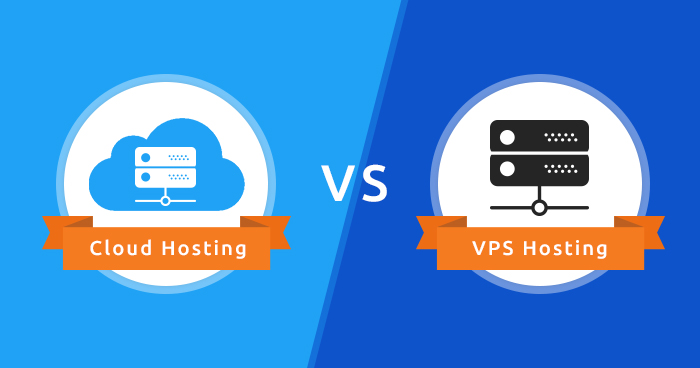In the web hosting sector, there is a lot of misunderstanding concerning the technological differences between Cloud Hosting and VPS Hosting. The majority of individuals misunderstand the fundamental difference between the two. This is due to a lack of understanding of the differences between these two web hosting systems.
With the introduction of virtualization and remote operations, the number of established enterprises and even startups using similar technologies to host their websites has increased significantly. They are no longer need to possess a physical architecture, an operating system, and finally the specific web application on which the website will be hosted.
What is VPS Hosting?
VPS (Virtual Private Servers) Hosting, often known as “Private Cloud,” is based on servers that have been built utilising virtualization technology. On the same virtual machine, the design has many individual dedicated slots. Dedicated resources can be assigned to each slot. The technique is built on a time-shared or resource-shared model, respectively.
One of the major drawbacks preventing the VPS hosting industry from progressing is its vulnerability, which can cause a specific slot or resource to go down in any crash scenario, providing the application or website hosted on that space unavailable with no redundant online availability unless and until the issue is resolved. The rest of the applications on different slots, on the other hand, will continue to function normally.
However, in rare situations, a big problem affecting a specific slot, such as unusually high traffic on a random day or a DDoS assault, might bring the entire machine and all future applications to a pause because all resources belong to the same machine.
VPS hosting, on the other hand, has some advantages in that it closes the gap between dedicated and shared hosting options.
Benefits of VPS Hosting
- VPS hosting gives you complete control over your computer. You are free to manage your server however you like. You have full access to everything and can install any software you require.
- VPS hosting is really affordable. Unlike shared hosting, the VPS is unaffected by traffic or audience. You are isolated from the rest of the server and have your own resources.
- VPS hosting is a safe option. Regardless of their server rights, all of your data are private and unavailable to other clients.
What is Cloud Hosting?
Cloud hosting is currently the most advanced website hosting solution available. In a short period of time, technology has gained a huge amount of acceptability. Cloud-hosted websites can be accessed at any time and from any location. This means that each website’s hosting resources are replicated across all cloud servers in the cluster. For example, if one cloud server is already at capacity, the query for that site is immediately routed to the cluster’s idle cloud server.
The cluster’s cloud servers are all allocated equal resources at the same time, which ensures a high level of stability. For example, if one of the machines fails, the hosting service as a whole will not fail or be affected.
Benefits of Cloud Hosting
- Your website is hosted on a virtual partition that utilises numerous physical networks, cloud hosting is relatively reliable. When one of the servers goes down, the cloud’s resource level drops significantly, but it has no effect on your website. There is never any inaccessibility or anything like that.
- Many physical servers defend cloud hosting against third-parties attempting to gain access to their facilities or disrupt their services.
- Cloud hosting is adaptable, scalable, and expandable. It is not constrained in the same way that a single server is. Resources are available in real time and in response to your demands.
- Because you only pay for what you use, cloud hosting is cost-effective.
Which servers to choose?
VPS hosting is inherently inefficient because each customer is given a set quantity of computing resources. As a result, if the demand grows, the system will be unable to handle the additional intake. It will simply stop working. If the server fails, the same thing will happen.
Cloud hosting, on the other hand, takes a different approach to the problem. The website is hosted on a pool of unified computer resources in a cloud environment. Simply put, if one server reaches its maximum capacity, a second server is ready to take over. In the same way, if one server fails, the website will continue to function since other servers will handle the incoming traffic. Cloud hosting is an excellent solution if you want stability and advanced features. Casbay provides a reasonable price for cloud hosting plans.
VPS is designed for users who only want to host a single website. VPS, while strong, does not ensure uptime if your website goes down due to large traffic or a technical problem.
Cloud-based hosting is more stable since, because it is autonomous, there will be no impact on performance if a component fails.
For more information about Linux VPS and Windows VPS Hosting, kindly refer to our website, Casbay Australia.



